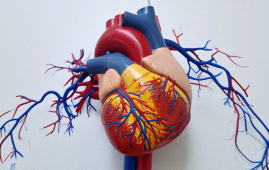


Eurordis opened a campaign, called Rare 2030 Action, that is seeking to establish a European action plan for rare diseases to ensure that none of the 30 million people in Europe living with rare diseases are left behind by the start of a new decade.
As part of the campaign, rare disease patients and their caregivers, family members, and others are being invited use an online form to tell Ursula von der Leyen, president of the European Commission, why Europe needs to act now to ensure a better future for them by 2030.
The campaign is also seeking engagement on social media, using the hashtag #30millionreasons, and is encouraging people across the European Union to ask their MEP (member of the European Parliament) to join the Parliamentary Network of Advocates on rare diseases.
“We all have a role to play: as a person living with or caring for someone with a rare disease, as their friends and family, as a patient advocate, as a doctor, as a healthcare professional, as a policy maker, as someone working in the rare disease field,” Eurordis stated on a webpage.
This campaign follows findings of the Rare 2030 Foresight Study, a program initiated by the European Parliament and co-funded by the European Commission Pilot Project and Preparatory Actions Programme. The study, which took two years and involved more than 250 experts from across the rare disease community, produced several overarching recommendations to improve life for people with rare diseases in Europe.
A major recommendation was the need for a new European policy framework for rare diseases. Such a policy framework would encourage investments in rare disease at both European and national levels, help to facilitate national plans for rare diseases, and bring together a concerted strategy to complement existing legislation in a variety of areas that affect people with rare diseases, including healthcare, social welfare, and research.
Implementing this kind of policy framework would help to improve the extent and quality of life of people with rare diseases, and would ensure that Europe is a global leader in rare disease innovation, according to Eurordis. This patient-drive alliance represents 962 rare disease patient organizations in 73 countries.
Only 6% of rare diseases have treatments currently, Eurordis states, and patients have to wait five years, on average, to get the right diagnosis.
Other recommendations from the Rare 2030 Foresight Study included making rare disease diagnoses earlier and more accurately, prioritizing research and the effective use of data, improving the accessibility and affordability of treatments, and cultivating a culture that allows people with rare diseases to play active roles in their communities.
Among specific goals of the group’s action plan are to make 1,000 new treatments for rare diseases available to patients in Europe, and make improvements necessary to ensure such diseases are diagnosed in six months, Eurordis stated.
Across the EU, a rare disease is defined as one affected fewer than 1 in every 2,000 people.
more recommended stories
 Pancreatic Cancer Research: Triple-Drug Therapy Success
Pancreatic Cancer Research: Triple-Drug Therapy SuccessKey Summary Spanish researchers report complete.
 Immune Cell Epigenome Links Genetics and Life Experience
Immune Cell Epigenome Links Genetics and Life ExperienceKey Takeaway Summary Immune cell responses.
 Chronic Pain Linked to CGIC Brain Circuit, Study Finds
Chronic Pain Linked to CGIC Brain Circuit, Study FindsKey Takeaways University of Colorado Boulder.
 High-Intensity Training and Oxidative Stress Insights
High-Intensity Training and Oxidative Stress InsightsNew Evidence Linking High-Intensity Training and.
 Perinatal Mental Health Challenges Highlighted in New Study
Perinatal Mental Health Challenges Highlighted in New StudyMental Health Challenges in New Parents:.
 Safer Allogeneic Stem Cell Transplants with Treg Therapy
Safer Allogeneic Stem Cell Transplants with Treg TherapyA new preclinical study from the.
 World Summit Outlines Core Principles for Healthy Longevity
World Summit Outlines Core Principles for Healthy LongevityWhy Healthy Longevity Demands a New.
 Cholesterol-Lowering Drugs May Help Reduce PFAS Levels
Cholesterol-Lowering Drugs May Help Reduce PFAS LevelsPer- and polyfluoroalkyl substances (PFAS) continue.
 AI ECG Model Outperforms Standard STEMI Triage
AI ECG Model Outperforms Standard STEMI TriageNovel AI ECG Model Outperforms Standard.
 WHO and EU Strengthen Digital Health in Africa
WHO and EU Strengthen Digital Health in AfricaThe World Health Organization (WHO) and.

Leave a Comment